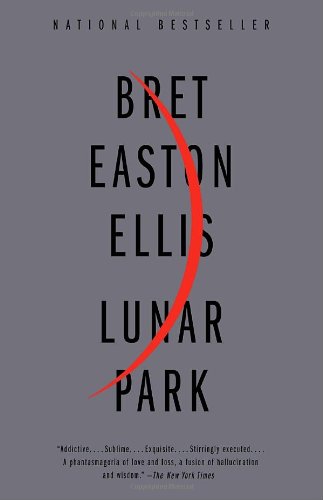
Lunar Park
Vintage Contemporaries
کتاب های مرتبط
- اطلاعات
- نقد و بررسی
- دیدگاه کاربران
نقد و بررسی

June 27, 2005
Having ridden to fame as the laureate of Reagan-era excesses, Ellis serves up a self-eviscerating apologia for all the awful things (wanton drug use, reckless promiscuity, serial murder) he worked so hard to glamorize. Narrated faux memoir style by a character named Bret Easton Ellis, author of bestsellers, L.A. native, friend to Jay McInerney, the book seeks to make obvious its autobiographical elements without actually remaining true to the facts. In the novel, Ellis marries B-list actress Jayne Dennis (with whom he'd fathered a child years earlier), moves to the New York City suburbs and begins working on his latest neo-porn shocker, Teenage Pussy
, when things start to go awry. His house becomes possessed by strange, threatening spirits intent on attacking his family and transforming their home into the pink stucco green shag disaster of Ellis's childhood; a well-read stalker begins acting out, victim by victim, the plot of American Psycho
; and the town becomes enthralled by a string of child abductions (oddly, only the boys are disappearing) that may or may not be the work of Ellis's son.
This is a peculiar novel, gothic in tone and supernatural in conceit, whose energy is built from its almost tabloidlike connection to real life. As a spirit haunting Ellis's house tells him, "I want you to reflect on your life. I want you to be aware of all the terrible things you have done. I want you to face the disaster that is Bret Easton Ellis." Ultimately, though, the book reads less like a roman à clef than as a bizarre type of celebrity penance. The closest contemporary comparison is, perhaps, the work of Philip Roth, who went for such thinly veiled self-criticism earlier in his career, but Roth's writing succeeded on its own merits, whereas Lunar Park
begs a knowledge of Ellis's celebrity and the casual misanthropy his books espoused. Yet for those familiar with Ellis's reputation, the book is mesmerizing, easily his best since Less than Zero
. Maybe for the first time, Ellis acknowledges that fiction has a truth all its own and consequences all too real. It is his
demons who destroy his home, break up his family and scuttle his best chance at happiness and sobriety. As a novel by anyone else, Lunar Park
would be hokum, but in context, it is a fascinating look at a once controversial celebrity as a middle-aged man. Agent, Amanda Urban
.

July 15, 2005
Ellis's shocking exposé s of Reagan-era excesses and emptiness (e.g., "Less Than Zero") have often been assumed autobiographical. Here, he goes one step further and becomes his own fictional character, inviting us into the rise of his literary career and sharing the demons that fueled his aspirations: his escape from a tyrannical father and his harrowing experience writing "American Psycho", during which he feels he nearly channeled that novel's homicidal sociopath Patrick Bateman. Now Ellis, newly married to his old flame, is trying to become a family man -well, the kind of family man who hits on his students and binges on drugs and alcohol behind his wife's back. Nothing really reforms this unrepentant bad boy until spooky things start to happen: a student bearing an uncanny resemblance to Patrick Bateman appears, copycat "Psycho" murders begin to occur, and a child's toy comes menacingly to life. Does the story take a semiparanormal turn, or is it simply Ellis's mounting paranoia? Ellis delivers for his fans and for the new guard of Palahniuk readers who will appreciate his straightforward prose and twisting plot lines. He even seems to have matured -or perhaps he is simply acknowledging that his best subject has always been himself. For larger public libraries. -Misha Stone, Seattle P.L.
Copyright 2005 Library Journal, LLC Used with permission.

June 1, 2005
There's a danger when a writer becomes a character in his own novel in order to explore the dissonance between fact and fiction: for readers who haven't followed the writer's personal life, much of the writer's effort will be wasted. In Jay McInerney's--woops, Bret Easton Ellis'--latest, the writer imagines an alternate reality for himself in which he attempts to transform from drug-addled, city-dwelling celebrity author to caring suburban dad. The first chapter promises intimacy, but soon we're trekking through a familiar emotional moonscape. The family drama is hung on a convoluted horror plot that involves missing boys, a possessed toy, the ghost of Ellis pere, and a mysterious stranger who may be impersonating " American Psycho"(Reprinted with permission of Booklist, copyright 2005, American Library Association.)

























دیدگاه کاربران